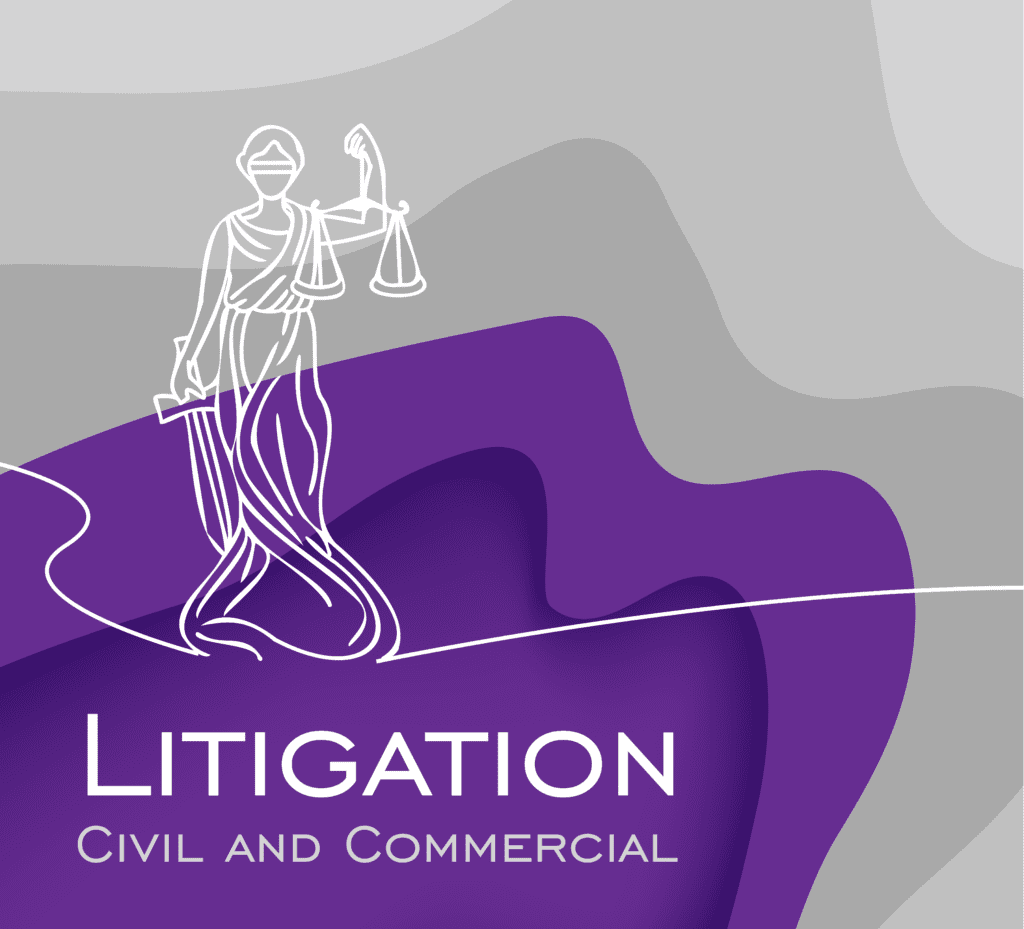We often hear a common question from individuals who have loaned money and are waiting to be repaid: “How can I get my money back?”. Our first question is asking if there is a written loan agreement in place. Interestingly, the answer is often no. This presents some difficulties for lenders when it comes to enforcing or recovering their loans without a written agreement.
This article highlights the importance of having a properly drafted loan agreement and provides guidance on writing one, but also cautions against doing it yourself.
Was there an agreement between the parties?
Let’s start by making something clear: a loan does not become unrecoverable just because it is not formalised in a written agreement. A basic rule of contract law is that verbal agreements are legally binding (with some exceptions). However, the biggest obstacle a claimant will face is proving that such an agreement ever existed in the first place.
The claimant will have to produce sufficient evidence to show the Court that such an agreement existed, that both parties knew and understood it was a loan, as well as evidence as to the material terms of the loan e.g. £12,000 to be repaid in 6 equal monthly instalments starting on 1 March 2024.
In the absence of a written agreement, the existence of the agreement is mostly inferred from the parties’ conduct’. Evidence could also include correspondence such as texts or messages between the parties, witness statements, proof of payment(s), and even notes written around the time of the agreement.
A judge is unlikely to find that there was a valid loan agreement if the evidence cannot show that the agreement was in fact a loan agreement and that the terms (such as period of the loan, when repayable and how repayable) were agreed between the parties. If the evidence is sufficient, then the court will find that there was a loan agreement and it will now be a case of enforcing the loan.
What if there were witnesses to the agreement?
If anyone was present when the loan agreement was made, they could potentially provide a signed witness statement as proof. However there are various difficulties with relying on third-party witnesses:
- They may not wish to give evidence – many witnesses do not want to get involved in legal proceedings and choose not to provide a witness statement
- They cannot remember the details – particularly if the loan was made a long time ago, it can be difficult for a witness to recall all of the details especially as to the terms of the agreement
- The witness is no longer available – depending on who the witness may be, they may no longer be contactable and therefore unavailable to provide a statement
It’s important to keep in mind that obtaining third-party witness statements can lead to additional costs for the claimant, as these statements need to be properly drafted and formatted.
Now imagine if there was already a written loan agreement in place.
The benefits of a properly drafted loan agreement
Time and Cost Efficiency:
Having a written loan agreement can really give a claimant an advantage over someone who doesn’t have one. It saves time, money, and effort in proving the agreement’s existence. Thus, some might consider putting together an informal written agreement that is signed by all parties, however just having something in writing does not automatically make it enforceable.
For example, Johnny loans his friend Sarah £30,000 towards her kitchen extension and they agree she will pay him back when she sells her house from the proceeds of the sale of the property. They sign a written agreement which includes a term that Sarah must transfer the entire sum to him within 5 minutes of completion of the sale. This condition may be deemed unreasonably difficult to meet and may not be viewed as legally enforceable by a court, which would then have to allow a reasonable period for payment.
Clarity and Enforceability:
While informal agreements are better than nothing, professionally drafted agreements are far more likely to be enforceable. Engaging a legal professional to draft the terms of the agreement minimizes the risk of unenforceability. This ensures that all essential terms are covered, and the legal expert can advise on additional clauses that the parties might not have considered. For example, parties might overlook the inclusion of a “force majeure” clause, which allows for the suspension of obligations in the event of unforeseen circumstances like natural disasters. Another important clause is the “acceleration clause,” which stipulates that the entire loan amount becomes due immediately if the borrower defaults on a payment. Additionally, a “choice of law” clause can specify which jurisdiction’s laws will govern the agreement, which is crucial for resolving disputes. These clauses enhance the clarity and enforceability of the agreement, protecting both parties’ interests.
Furthermore, a professionally drafted agreement will include detailed provisions outlining the consequences for any party failing to fulfill their obligations, such as interest rates and payment acceleration clauses. Other additional clauses may need to be added based on the specific agreement, and it is essential that these clauses are drafted clearly to prevent ambiguity. Any clause written ambiguously or open to interpretation can be interpreted differently in court, potentially leading to unfavorable outcomes. For more information on the importance of clear terms and preventing misunderstandings, refer to the “Avoiding Misunderstandings” paragraph.
Avoiding Misunderstandings:
A well-drafted agreement not only ensures enforceability but also plays a crucial role in preventing misunderstandings. By clearly outlining each party’s rights and obligations, it eliminates ambiguity and sets clear expectations from the outset. This clarity helps in maintaining a good relationship between the lender and the borrower by ensuring that both parties are on the same page. Detailed terms regarding repayment schedules, interest rates, and penalties for late payments help prevent disputes and ensure smooth enforcement of the agreement.
If an agreement is not written by a professional, there is a significant risk of ambiguity and misinterpretation. For example, terms like “reasonable time” for repayment or “fair interest rate” can be interpreted in multiple ways, leading to potential conflicts. A non-professional might overlook crucial details, such as specific deadlines, conditions for late payments, or the precise method of repayment, which can cause confusion and disagreement between the parties. Additionally, poorly drafted clauses might be too vague or broad, leaving them open to various interpretations in a legal context. This can result in unfavorable outcomes in court, as judges may interpret these clauses differently than intended. A professional ensures that the agreement is comprehensive, unambiguous, and tailored to the specific needs of both parties, thereby reducing the likelihood of conflicts and facilitating a better understanding and smoother execution of the loan terms.
Avoid the Mistake of DIY Loan Agreements:
Many people make the mistake of thinking, “Oh, I trust this person, they won’t let me down; it won’t be an issue.” Unfortunately, in most cases, it does become an issue. While it may be tempting to write your own loan agreement to save time and money, this approach can lead to significant problems down the line. DIY agreements often lack the necessary legal precision and comprehensive coverage needed to protect both parties adequately. Without the guidance of a legal professional, crucial clauses might be omitted, and ambiguous language can lead to misinterpretation and disputes. A poorly drafted agreement can be easily challenged in court, potentially resulting in unfavorable outcomes for the lender. To ensure that your loan agreement is enforceable and covers all essential aspects, it is highly recommended to seek professional legal assistance. This investment can save you from costly legal battles and ensure that your interests are fully protected.
How can we help?
If you would like advice and assistance with drafting a loan agreement, or you need assistance with enforcing a verbal or written agreement, our specialist solicitors can help.
Reach out to us today at the following numbers to connect with a member of our team:
• Luton, dial +441582 383 888.
• London, dial +442034 393 888.
• St Albans, dial +441727 519 888.
Alternatively, if you’re accessing this information outside our business hours (9am to 5.30pm Monday to Friday, excluding bank holidays) or prefer to put your request in writing, please use our contact form. We’ll promptly respond within 1 working day.




